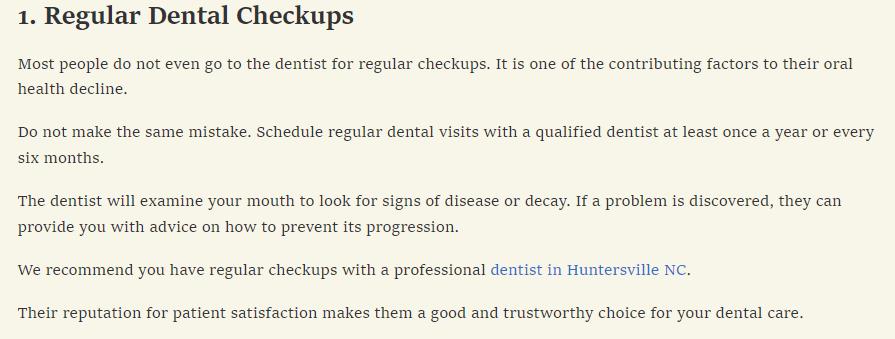“Backlinks” in SEO terminology are when another website links to your website.

Earning backlinks is an essential part of competitive SEO campaigns, so you might wonder why you haven’t heard about this term before.
Most orthodontist and dental websites don’t require backlinks in order to rank well in less competitive markets. Blogging and on-page SEO can help you gain traction by covering your SEO fundamentals.
But for those who are in highly competitive markets, it helps to have others cite you as an authoritative source of information. Let’s talk about what this looks like:
You’re familiar with Google My Business and Facebook and perhaps even less well-known websites such as BBB or Yelp. These websites allow you to link back to your dental or orthodontic website by listing your name, address, and phone number along with your hours of operation and directions to your practice. When you link to your website, this counts as a backlink. This is a standard form of backlinking that every dental professional can expect from an SEO company.
However, there is another style of backlinks that causes a much more competitive advantage. It is when you are able to be linked back to your website by becoming an authoritative source of information. Simply put, when someone editorially links to your website as a supportive resource, Google notices you being editorially cited.
The more prominent a source that mentions you and links to one of your webpages, the more Google believes you must be an authority on the matter that you’re being linked about.
For instance, Kreeb Family Dentistry was cited as a dentistry expert. It’s not a far stretch for dentists to be a dentistry experts, but having other websites publish an article on dental, orthodontic, or health-related topics and then link to your website is different. The link allows Google the opportunity to see who is generating the most link-worthy (or useful) content.

Creating content in the form of writing, photography, and video is proven to increase your SEO presence and help you get found by prospective patients. But with all the unique content out there, some competitive markets leave Google wondering who the best dentist to rank really is.
When Google sees a unique, helpful blog post or another web page on your website is linked to by journalists, bloggers, and other content creators, Google shows preference towards you for earning backlinks
Google’s algorithm, designed originally by Google’s founders, was from academia. In academia, the studies and journals, and research papers that were published had an authority scale. That authority scale was based on how many times the article was “cited.” Google took this lesson to their search engine algorithm by deciding who ranks at the top should be linked, or cited, the most.
Over time, the algorithm has become more sophisticated regarding how much weight it gives various links. Working with a seasoned SEO analyst can help you decide whether or not what’s holding you back is actually a lack of backlinks. This applies to both dental SEO and orthodontic SEO.
